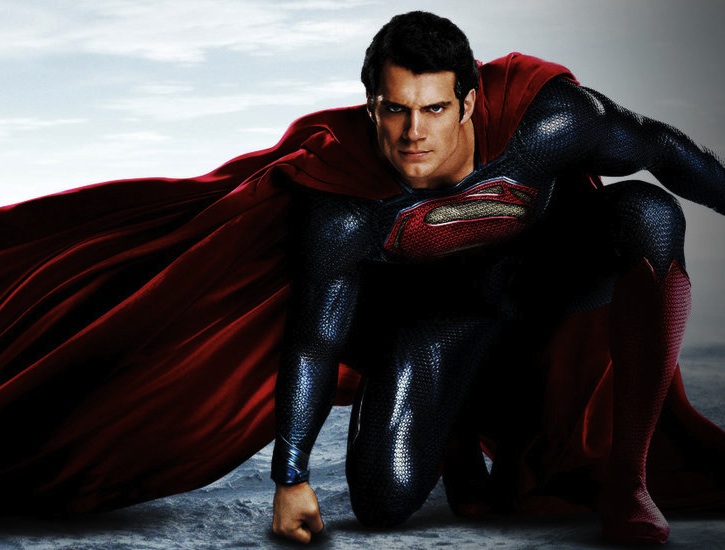Reflections on Superman and Mickey Mouse
I was reading a film review by actor James Franco of the new Superman movie, which I saw at the midnight premier right before I hopped on the flight out to California for the weekend. My family wanted to go, and I’ve always like Henry Cavill’s work since the adaptation of the seminal work of Alexander Dumas, The Count of Monte Cristo, so I thought it would be fun. When we were in the theater, the talk turned to the actual character of Superman.
Basically, what Franco says almost perfectly encapsulates what the group of late-20’s to early-30’s people were saying as we debated the origin of the comics. He gets straight to the heart of it:
I missed the whole Superman-film phenomenon. I was more a fan of director Richard Donner’s Goonies and Lethal Weapon. I can understand the appeal the original Superman comics had for the WWII generation and its need for a hero to rid the world of evil, but in my days as a young man, this appeal was long outstripped by the cheesiness of the character’s suit and his douchey invincibility.
There it is. That’s it; the ethos of the zeitgeist. The character of Superman seems hokey, like the sort of thing that had appeal to a naïf, completely ignorant of the realities of the world with childhood delusions of god-like power; a cultural symbol that spoke to generations for whom America did no wrong, the government was always looking out for you, life was black and white, and a man coming down in tights and a cape – a ridiculous getup on its own but one that would make the aerodynamics of flying far more difficult as well as encumbering rapid movements – seemed awe-inspiring. It’s the same, worn tiredness of post-Depression-era relics that are empty shells as the ability to connect with the most primitive part of the brain is lost.
It doesn’t resonate. It’s like a dead religion that’s lost its power to inspire; hymns to Zeus that no longer elevate the soul.

Today, you have billions of people who have been exposed to far more basic science and, for good or bad, the nuanced nature of the world. The X-Men film franchise did a very good job illustrating this. Despite having many of the same powers Superman did, and in some cases, exceeding them, it permitted the suspension of belief because the premise was based upon human evolution; the moral decisions not entirely clear. Was Magneto actually evil? While he sometimes did evil things, no. He wasn’t. Having lived through the concentration camps of World War II, he would never again be part of a minority numbered, counted, imprisoned, and executed; even if that meant he had to kill to protect his own kind. You could empathize with the characters. You could understand the actions of frightened parents who were harming their children even though they were acting out of love.
The recent film installment of Superman did mitigate some of those problems; namely, the villain is not actually malevolent despite wanting to murder 7 billion people. Rather, by not completing the genocide, he is knowingly condemning his own planet to death, therefore it is a matter of which life is more valuable, entering the territory of moral ambiguity under the harm principle. That was refreshing. It faltered in other ways; namely, an over-reliance upon special effects and an attempt to reveal the soul of Superman while failing to form emotional connections that made the journey seem meaningful, though this seemed almost entirely the fault of the screenplay and director rather than the cast.
The question I am trying to figure out, then, especially in light of all the Disney case studies I have been doing lately: What is it that can make a 65 year old break down into tears of joy at watching Mickey Mouse put on a magical hat and direct dancing brooms as shooting stars go overhead, but roll her eyes at Superman?
Something in there explains a lot about humanity.
It explains a lot about our values.
It explains a lot about our psychology.
It even explains a lot about why some businesses, and intellectual property, do very well over time while others are only relevant for a short window, at specific inflection points in a culture.
Is it that Mickey doesn’t take himself seriously? That he is winking with us? That he’s out there, smiling, say, “Let’s go have an adventure” so that the audience member is in on the joke?
Is it that our culture has grown so wise, so educated, and so experienced relative to the past that we can no longer tolerate the doe-eyed innocence upon which Superman’s adoration depends? When Superman was introduced, flying in an airplane was a fantasy for most of the world’s population. Are we jaded by advances and technology?
There is something huge here. If I can figure out the reason one symbol resonates so deeply, and so profoundly, on a universal level across all age groups and cultures, while the other borders on delusions of grandeur and irrelevance, a ghost of generations now in the ground, it will be a valuable insight.
This is what is on my desk, and my mind, this afternoon.


